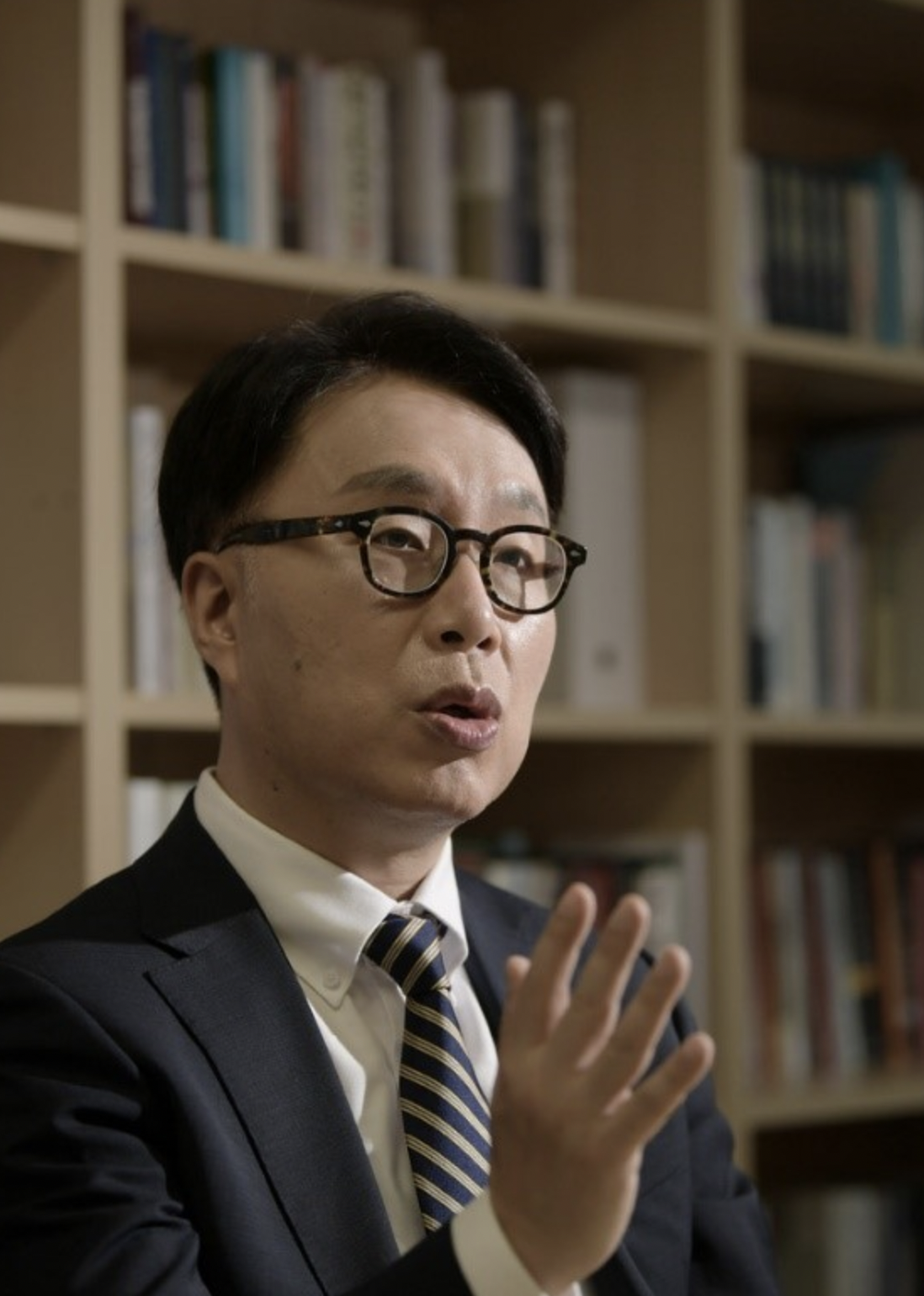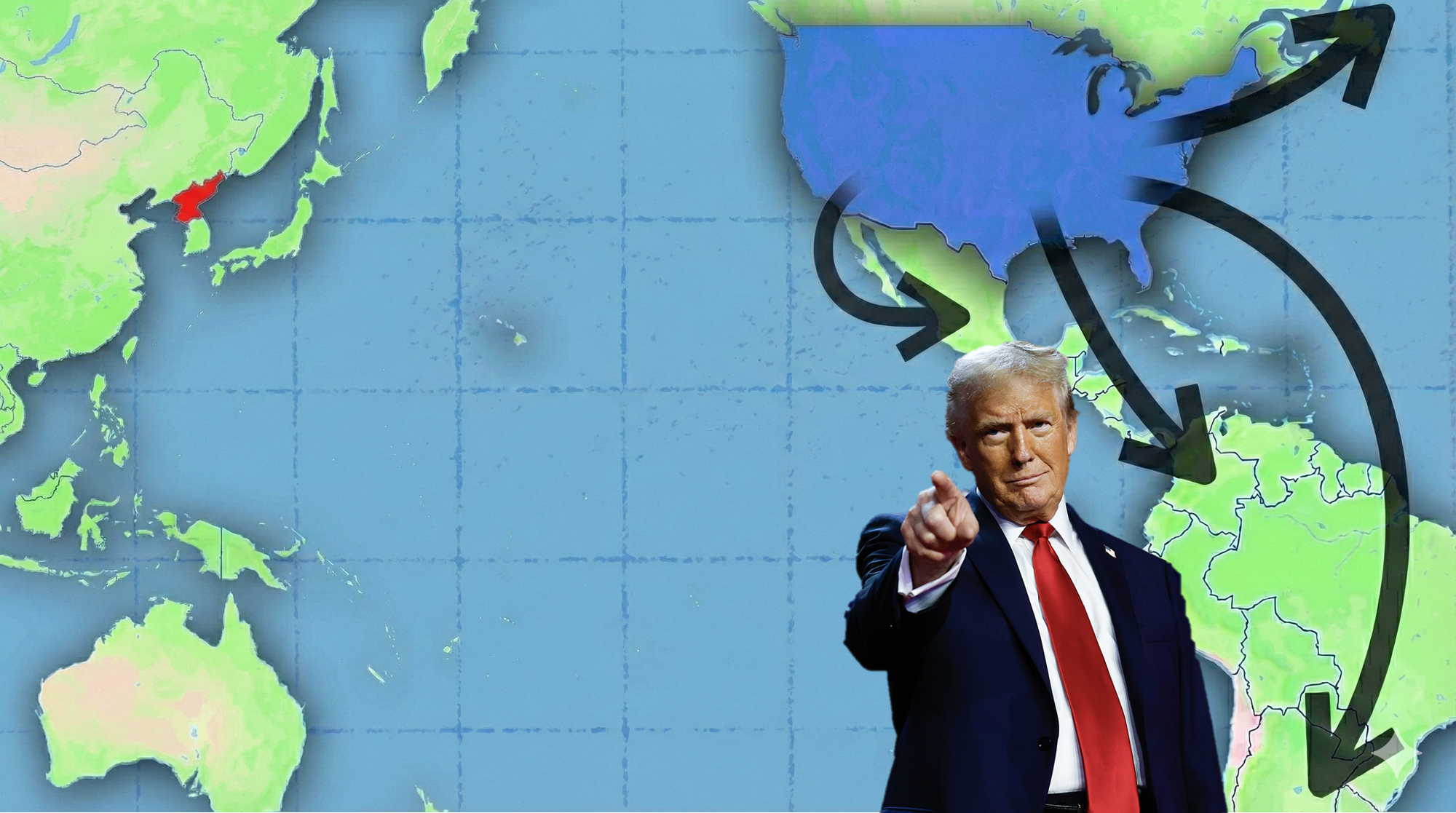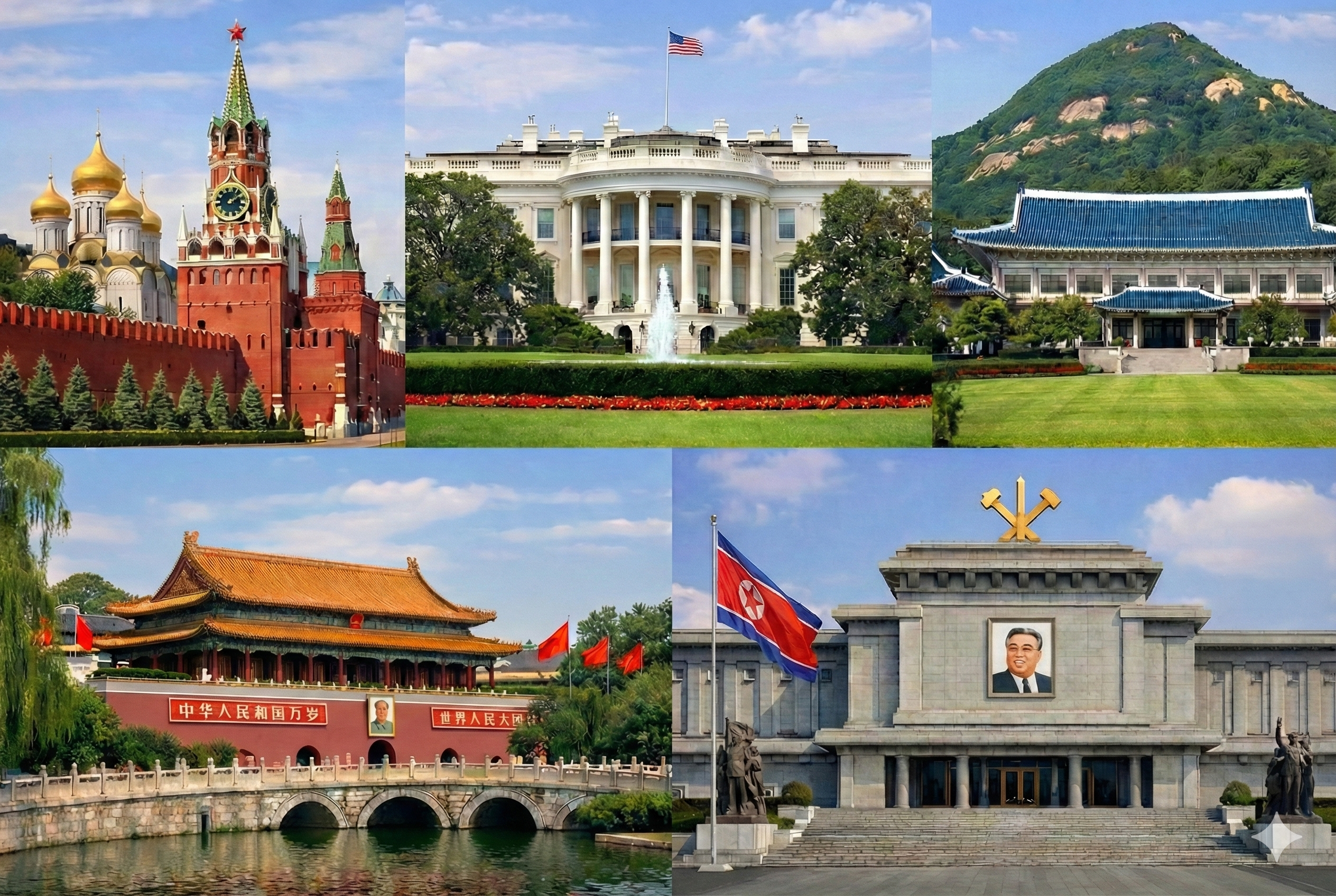TRANSCRIPT (Subtitles)
Trump’s Attempt at a North Korea-U.S. Summit
Hello, everyone. Today's topic is the meeting that didn’t materialize between President Trump and Chairman Kim Jong Un during the recent APEC summit. We will focus on analyzing why it ultimately fell through and whether there is still potential for future North Korea-U.S. talks. Frankly, I too initially had doubts about how likely it would be, given that President Trump had repeatedly stated throughout his inauguration and election campaign that he would meet with North Korea's Kim Jong Un. However, during his two-day visit to South Korea on October 29th and 30th, President Trump personally made a series of quite specific and markedly more forward-looking statements than before. Of course, these were not official statements at all but were mainly remarks made in response to questions from reporters aboard the plane. Still, I believe the remarks carried significance. Even before this trip, he kept saying he wanted to meet North Korea's Kim Jong Un. For instance, he stated, “If Kim Jong Un contacts me, I will meet him.” This brought back memories of the surprise meeting in June 2019 that many recall, leading quite a few people to start spinning a bit of wishful thinking about whether it might happen again this time. Among the most significant remarks made by President Trump were several key statements. One occurred aboard the flight to Kuala Lumpur in Malaysia, where reporters asked him: “North Korea insists it must be recognized as a nuclear power to engage in talks with the U.S. Are you open to that?” President Trump responded, “I think they are sort of a nuclear power.” “Trump Leaves Room for Recognizing North Korea's Nuclear Status” He later said that extending the trip was possible and that he could go anywhere. This time, on Air Force One from Kuala Lumpur, Malaysia, to Tokyo, Japan, a similar question arose, and he responded with the following remarks. Even when asked if he could extend the trip, he said, “I can extend it.” He emphasized that to meet Kim Jong Un, he could demonstrate that level of sincerity and go anywhere. “I'm in South Korea. Since I'll be in South Korea, which is close to North Korea, if a meeting with Chairman Kim Jong Un is set, I can meet him immediately.” He continued making statements like that, keeping the door open. Finally, he also spoke about lifting sanctions. He specifically used the phrase, “Well, we have sanctions, that's pretty big to start with.” When asked if sanctions on North Korea could be lifted, he stated that sanctions are currently in place, but lifting them is also a very big matter, and that he could discuss it. I'll elaborate later, but I believe North Korea still views this sanctions issue as extremely important. In fact, in a way, President Trump shared various thoughts Chairman Kim Jong Un likely wanted to hear. Of course, he expressed his personal views when asked questions, rather than stating an official position. But you all know well how North Korea reacted, right? They responded by launching missiles over two days: a short-range ballistic missile on October 22nd, followed by a ground-to-ship cruise missile in the West Sea on October 28th. This is a missile capable of carrying a nuclear warhead. The short-range ballistic missile mentioned earlier is also estimated to be the KN-23, which is a missile capable of carrying a low-yield nuclear warhead. “North Korea Responds to Dialogue Offer with Military Provocation” Furthermore, they sent their Foreign Minister Choi Son-hee on a visit to Russia and Belarus at a remarkably well-timed moment. She departed on October 26th and stayed until the 28th. As Foreign Minister, if a surprise meeting between Trump and Kim Jong Un required one representative from each side, the U.S. would send the Secretary of State, and North Korea would send the Foreign Minister. Had such a surprise meeting occurred, the likelihood of any decisions or agreements being reached was virtually nonexistent. The meaning was likely this: “This meeting serves as a starting point for future dialogue between the U.S. and North Korea.” Therefore, it would have been appropriate for the Foreign Ministers, who lead these talks at the working level, to be present together. “Choi Son-hee's visit to Russia expresses Kim Jong Un's intent.” Let me attempt an overall interpretation. First, an extremely fierce battle of words unfolded outside the meeting.
Competition for the Upper Hand
Trump stating this officially and publicly makes it difficult to conclude there were behind-the-scenes contacts between the U.S. and North Korea. If such backchannel contacts had occurred, there would have been no need for an official or public statement. And although North Korea didn't give a direct response, it demonstrated its position through its actions. This strongly suggests that intense behind-the-scenes maneuvering took place. It also implies that the “U.S. and North Korea Enter Probing Phase Over Negotiation Initiative” I previously thought there was absolutely no chance North Korea would come out to talk. But given Trump’s enthusiasm mentioned earlier, I'd say the probability has risen a bit, maybe from 1 to around 2 on a scale of 1 to 10. There are two reasons for this. First, though the phrasing is a bit blunt, “Kim Jong Un may be concerned about Trump's lingering resentment.” One of Trump's defining traits is this unpredictability. Despite showing considerable sincerity by persistently inviting Chairman Kim Jong Un and making statements tailored to what Kim might want to hear, Kim still didn't show up. From Trump's perspective, this must have been a blow to his pride and a failure to demonstrate his influence, leading to disappointment. Then, suddenly, Trump might revert to the so-called “fire and fury” rhetoric from 2017, threatening to “totally destroy North Korea,” or return to the maximum pressure campaign he pursued back then. From Kim Jong Un's perspective, it's entirely possible he was genuinely worried about that. Second, even if Kim Jong Un somehow meets Trump, it wouldn't lead to any meaningful agreement but would turn out to be just an event. Nevertheless, it could still serve to showcase Kim Jong Un's political achievements. Kim Jong Un met with Putin and Xi Jinping this year. If he were to meet with Trump as well, he could potentially tout himself as a global leader whose stature has risen by meeting leaders of the major powers—the U.S., China, and Russia. Moreover, whenever North Korea holds such talks, it always employs what it calls the “white flag theory.” It says, “hostile nations like South Korea or the U.S. raised a white flag and begged for dialogue. So our leader went and met with them.” This provides North Korea with domestic propaganda opportunities. This year marks the final year of the 8th Party Congress. North Korea's economy is in very poor shape. Next year, the 9th Party Congress must be held, and there's not much time left this year. “Kim Jong Un refuses dialogue” Then why didn't he meet? The reason I mentioned that a meeting was unlikely from the beginning can be found on September 21st, when Kim Jong Un delivered a 40-minute policy speech at the Supreme People's Assembly. He spoke in great detail about North Korea's policies toward South Korea and the United States. There are two key messages here. He stated he could meet with Trump, using precisely this phrasing: “I still personally hold good memories of the current U.S. President Trump.” He absolutely has no good memories. From Kim Jong Un's perspective, the common view among North Korea researchers is that in 2018 and 2019, Kim Jong Un felt duped by Trump and said that he fell into a trap. There can be no good feelings whatsoever. Yet, using this words indicates a willingness and intention to meet. However, it's not just about the meeting. At least two conditions were presented very clearly. The first is: “We will not engage in denuclearization negotiations as before, whether it's denuclearization of the Korean Peninsula or denuclearization of the Chosun Peninsula. Instead, let’s have nuclear disarmament negotiations. Adopt a new way of thinking.” Similar remarks were made in Kim Yo-jong's statement on July 29th. “Adopt a new way of thinking” – the precise phrasing was this: “If the U.S. abandons its obsession with denuclearization, we can engage in dialogue for genuine peaceful coexistence based on acknowledging that reality.” This expression indicates a shift from previous denuclearization talks to “negotiating nuclear arms control.” The second point is something North Korea has consistently demanded for a very long time: “First withdraw your hostile policy toward North Korea,” meaning the cessation of joint military exercises and the withdrawal of strategic assets. North Korea is demanding permanent cessation. “The U.S. must show sincerity first” is their precondition for dialogue. Crucially, unlike before, it's not a top-down approach but a bottom-up approach, because Trump explicitly stated that negotiations should be formalized with declarative meaning, not just passing remarks. This time, those conditions weren't met. This stems from Kim Jong Un's officially stated remarks. It's accurate to interpret that Kim Jong Un's true intention was having no desire to meet. As mentioned earlier, from Kim Jong Un's perspective, the surprise meeting in June 2019 likely left him feeling he was severely outmaneuvered by Trump. This is because, during that meeting, Kim Jong Un's first statement to Trump was demanding why the US was proceeding with joint military exercises and strategic asset deployments despite his promise to halt them. At that time, in August, the ROK-U.S. joint exercises had already been decided to proceed. When Kim raised this issue, Trump responded, “We won't conduct those joint exercises.” Thus, for about 50 minutes, Trump and Kim Jong Un effectively had a summit meeting. Since he said the U.S. wouldn't conduct joint drills or deploy strategic assets, they probably would have discussed other matters. But then they went ahead and conducted the joint drills and deployed strategic assets. So, from Kim Jong Un's perspective, he couldn't help but feel he'd been deceived by Trump. This connects to the subsequent chain of events: North Korea walked out of the final working-level talks in Sweden that October, then declared a “frontal breakthrough battle” at the 5th Plenary Meeting of the 7th Central Committee in December, effectively halting dialogue with the US. “Kim Jong Un Draws Line on US-North Korea Talks Based on Past Experience” So what happens next?
Prospects for a North Korea-U.S. Summit
I believe both the U.S. and North Korea have the motivation and willingness to meet in the future. Trump's willingness is somewhat ambiguous. I think Trump has a very strong sense of self-importance. This is an uncomfortable truth for us, but while North Korea's denuclearization is a core security issue of utmost importance to us, from Trump's perspective, he clearly wants to elevate his own name as a kind of peacemaker who resolved this issue. He wants to claim that he solved the North Korean denuclearization problem and the inter-Korean issues, problems that have persisted for over 30 years and over 70 years respectively. As widely known, he believes he has resolved all conflicts over the past few months and naturally deserves the Nobel Peace Prize. Given this sense of self-importance, it's clear he has shown interest in the North Korea issue again, and I believe there is a definite possibility he will attempt to lure North Korea back to the negotiating table. From North Korea's perspective, they also need to come to the table. As mentioned earlier, Kim Jong Un's statement during his September 21st Supreme People's Assembly speech effectively signaled a willingness to meet. This indicates that North Korea itself clearly recognizes the necessity for negotiations. However, I believe it is impossible for North Korea to achieve its stated goal of being recognized as a de facto nuclear power by the international community. Even Russia, which maintains close ties with North Korea, cannot officially recognize it as a de facto nuclear power. Doing so would undermine the non-proliferation regime established in 1968, which recognizes only five nations as nuclear powers: the U.S., UK, France, China, and the former Soviet Union (now Russia). Their nuclear monopoly would collapse. The moment the nuclear monopoly crumbles, South Korea will declare its intent to acquire nuclear weapons. Japan could potentially follow suit, and from Taiwan and Russia's perspective, Ukraine might also emerge as a nuclear power. This monopoly on nuclear weapons is an immense privilege. There's no chance they'll relinquish it, and I believe Kim Jong Un understands this very well. So, how can this be overcome? Ultimately, it comes down to lifting sanctions. This is the India-Pakistan model. “North Korea Explores Sanctions Relief Scenario Following India-Pakistan Model” That's the first reason. The second is that North Korea genuinely needs sanctions relief. Some argue that North Korea’s cooperation with Russia, coupled with China's reluctance to enforce sanctions rigorously, allows North Korea to evade sanctions. I disagree with that view. There is clear evidence that the sanctions are working.
North Korea-U.S. Summit and Sanctions
In 2016 and 2017, the UN passed comprehensive sanctions against North Korea. Around that time, the U.S. passed a series of extremely powerful sanctions under its unilateral Modernization of Sanctions Act. If the sanctions were ineffective, North Korea's level of foreign trade prior to 2016 should be comparable to its current level. That would indicate the sanctions are ineffective. While not exact, I'll share some estimated figures. From 2014 to 2016, North Korea’s recorded total annual trade volumes ranged from $6 billion to $7.6 billion. As of 2024, this figure is less than $3 billion. This means it has fallen to about a half to a third of that level. It still only accounts for about 20% to 30%, meaning “North Korea sanctions remain effective despite Russia's evasion.” Kim Jong Un clearly has ambitions to develop and advance North Korea's economy. Whether this stems from a desire to maintain his regime or a genuine wish to improve the lives of North Korean citizens, his commitment to economic development is real. Under current sanctions, however, North Korea cannot obtain an access to markets and attract investments it wants. North Korea does not wish to establish economic relations with South Korea, Europe, or the U.S. Even for deeper economic cooperation with China or the Global South, these sanctions must be lifted. Therefore, the possibility of the two countries meeting again in the future is certainly there. Another point demonstrating North Korea's concern about sanctions: Kim Jong Un's September 21 policy speech mentions “sanctions” five times. They claim they are completely unconcerned by sanctions and that sanctions cannot affect them. But look, if sanctions truly weren't causing that much pain and posed no real problem, there would be no need to make such statements. This demonstrates that North Korea is indeed feeling the pain of sanctions. Most recently, according to a statement by Kim Un-chol, Vice Minister of Foreign Affairs in charge of US affairs, on November 6, the U.S. recently revived UN sanctions and imposed unilateral sanctions against North Korea in early November. North Korea promptly responded. Whenever the U.S. or UN takes action regarding sanctions, North Korea immediately issues a message condemning it. I believe this further evinces that the sanctions are indeed working. Let me wrap up. This event nearly became a major one, with a lot going back-and-forth, but ultimately, the leaders of the U.S. and North Korea did not meet. “Prospects of Next Year's U.S.-North Korea Talks Shrouded in Fog” Today, we attempted to analyze the possibility of a U.S.-North Korea meeting centered around APEC. Thank you for watching.
■ Won Gon PARK is the Chair of EAI Center for North Korea Studies and a Professor of North Korean Studies at Ewha Womans University.
■ Translated and edited by: Sangjun LEE, EAI Research Associate
For inquiries: 02 2277 1683 (ext. 211) | leesj@eai.or.kr




